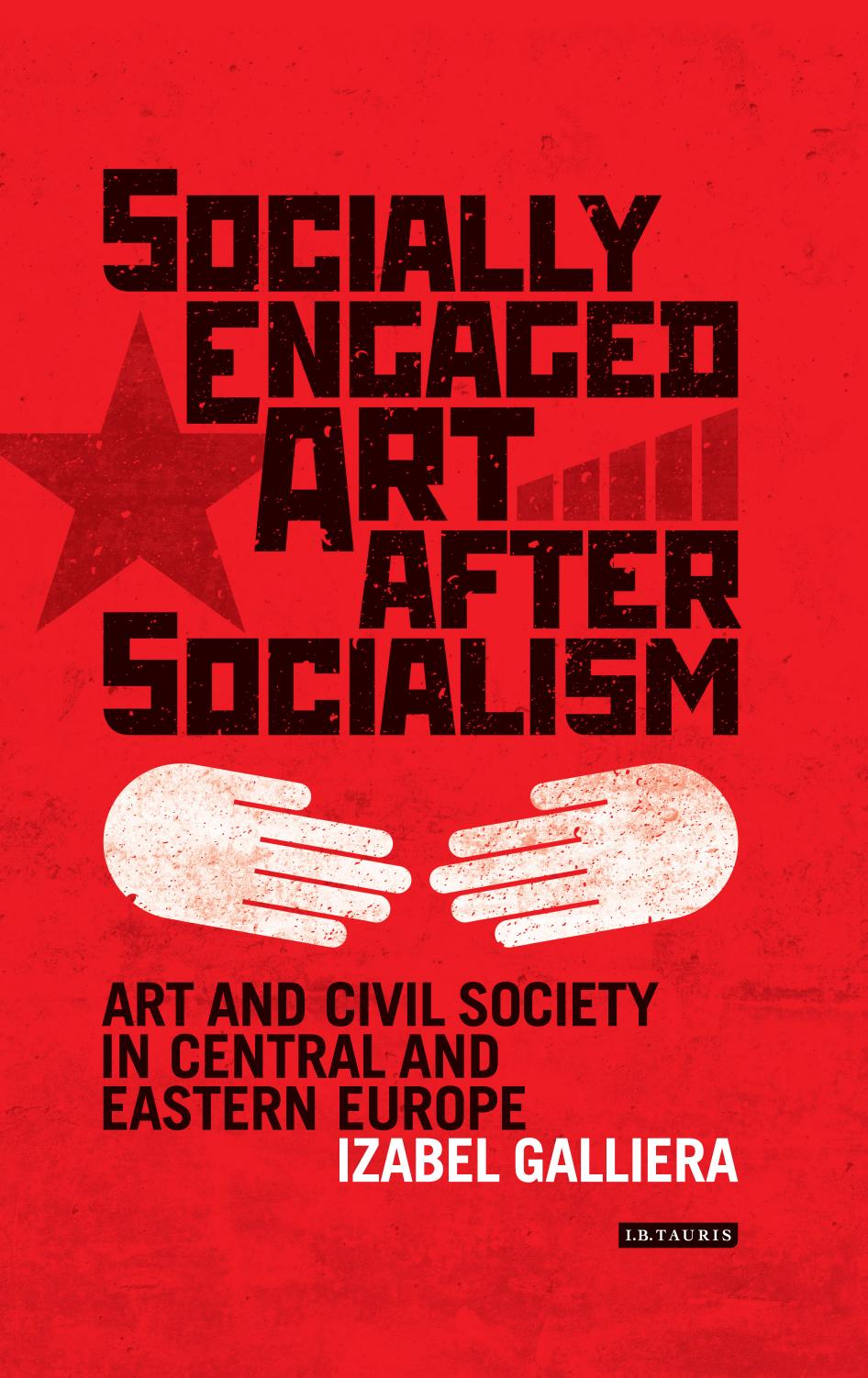Izabel Galliera: Socially Engaged Art After Socialism: Art and Civil Society in Central and Eastern Europe (2017)
Filed under book | Tags: · art history, bulgaria, civil society, communism, contemporary art, east-central europe, eastern europe, hungary, participation, politics, romania, southeastern europe

“Reclaiming public life from the ideologies of both communist regimes and neoliberalism, their projects have harnessed the politically subversive potential of social relations based on trust, reciprocity and solidarity. Drawing on archival material and exclusive interviews, in this book Izabel Galliera traces the development of socially engaged art from the early 1990s to the present in Bulgaria, Hungary and Romania. She demonstrates that, in the early 1990s, projects were primarily created for exhibitions organized and funded by the Soros Centers for Contemporary Art. In the early 2000s, prior to Bulgaria, Hungary and Romania entering into the European Union, EU institutions likewise funded socially-conscious public art in the region. Today, socially engaged art is characterised by the proliferation of independent and often self-funded artists’ initiatives in cities such as Sofia, Bucharest and Budapest.
Focusing on the relationships between art, social capital and civil society, Galliera employs sociological and political theories to reveal that, while social capital is generally considered a mechanism of exclusion in the West, in post-socialist contexts it has been leveraged by artists and curators as a vital means of communication and action.”
Publisher I.B. Tauris, London/New York, 2017
ISBN 9781784537135, 1784537136
xx+361 pages
Review: Denisa Tomkova (ARTMargins, 2018).
Comment (0)Robert T. Holt: Radio Free Europe (1958)
Filed under book | Tags: · bulgaria, central europe, communism, czechoslovakia, history, hungary, mass media, poland, politics, propaganda, public broadcasting, radio, romania, southeastern europe

What is radio Free Europe? Where does it broadcast? Who runs it? What are its purposes? Although thousands of Americans are familiar with Radio Free Europe (many have contributed to its support through the Crusade for Freedom campaigns), few know enough about its background to answer these and similar questions. In this book a political scientist with first-hand knowledge gives a detailed account of the organization and development of this unique propaganda enterprise.
Radio Free Europe was established as a private broadcasting project in 1949 by the Free Europe Committee, headed by Joseph C. Grew, as part of the Committee’s program of broad, long-range assistance to democratic exiles from totalitarian countries. The operational headquarters are located at Munich, and the broadcasts are directed to the people of five satellite countries: Czechoslovakia, Hungary, Romania, Bulgaria, and Poland.
Professor Holt tells how Radio Free Europe was established, outlines its basic policies and objectives, describes its organization, personnel, programming, and services, discusses transmission problems, and examines the effectiveness of the propaganda. He describes in detail the role of RFE in connection with the uprisings in Poland and Hungary and analyzes the charges that RFE stimulated the Hungarian revolt.
Publisher University of Minnesota Press, 1958
ISBN 978-0-8166-5788-9
249 pages

